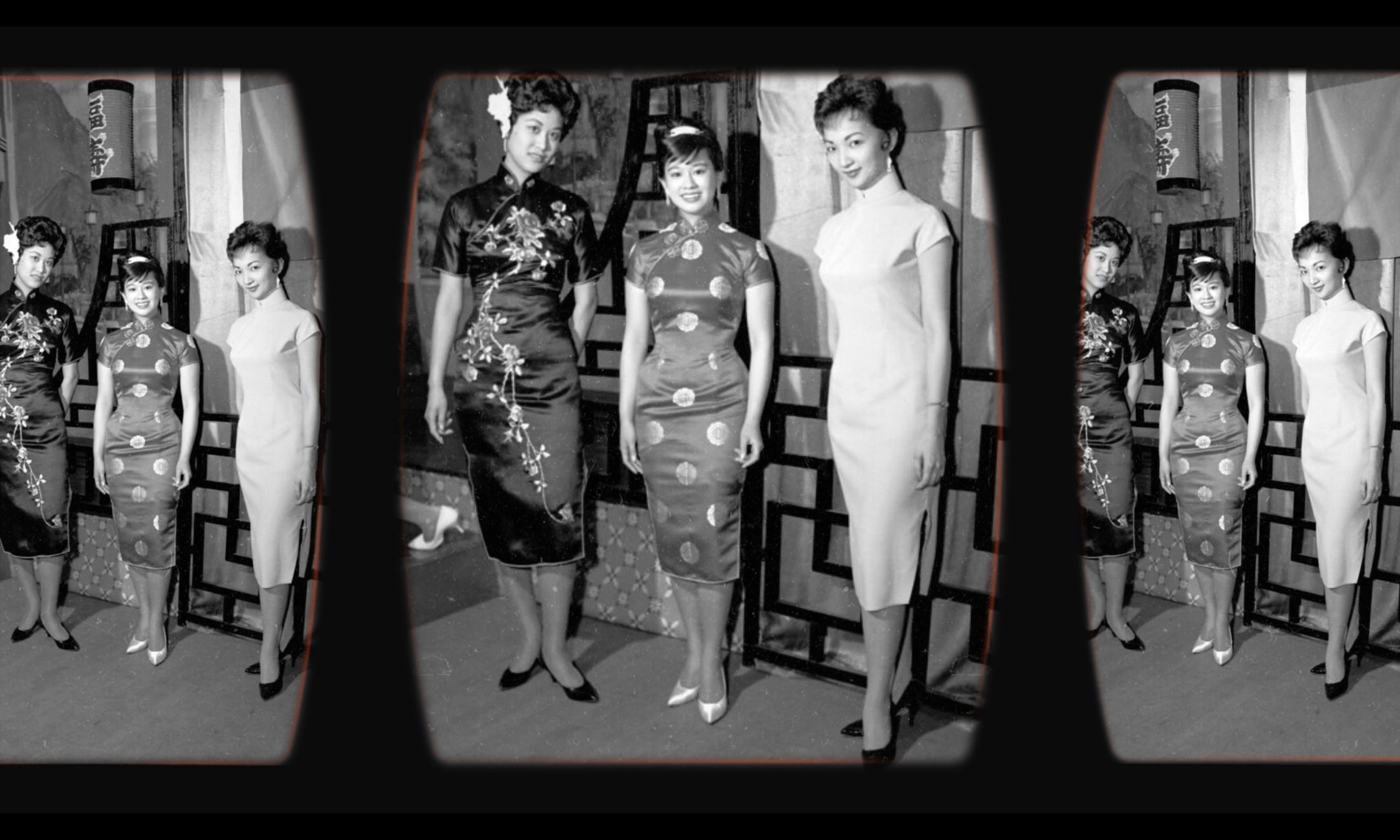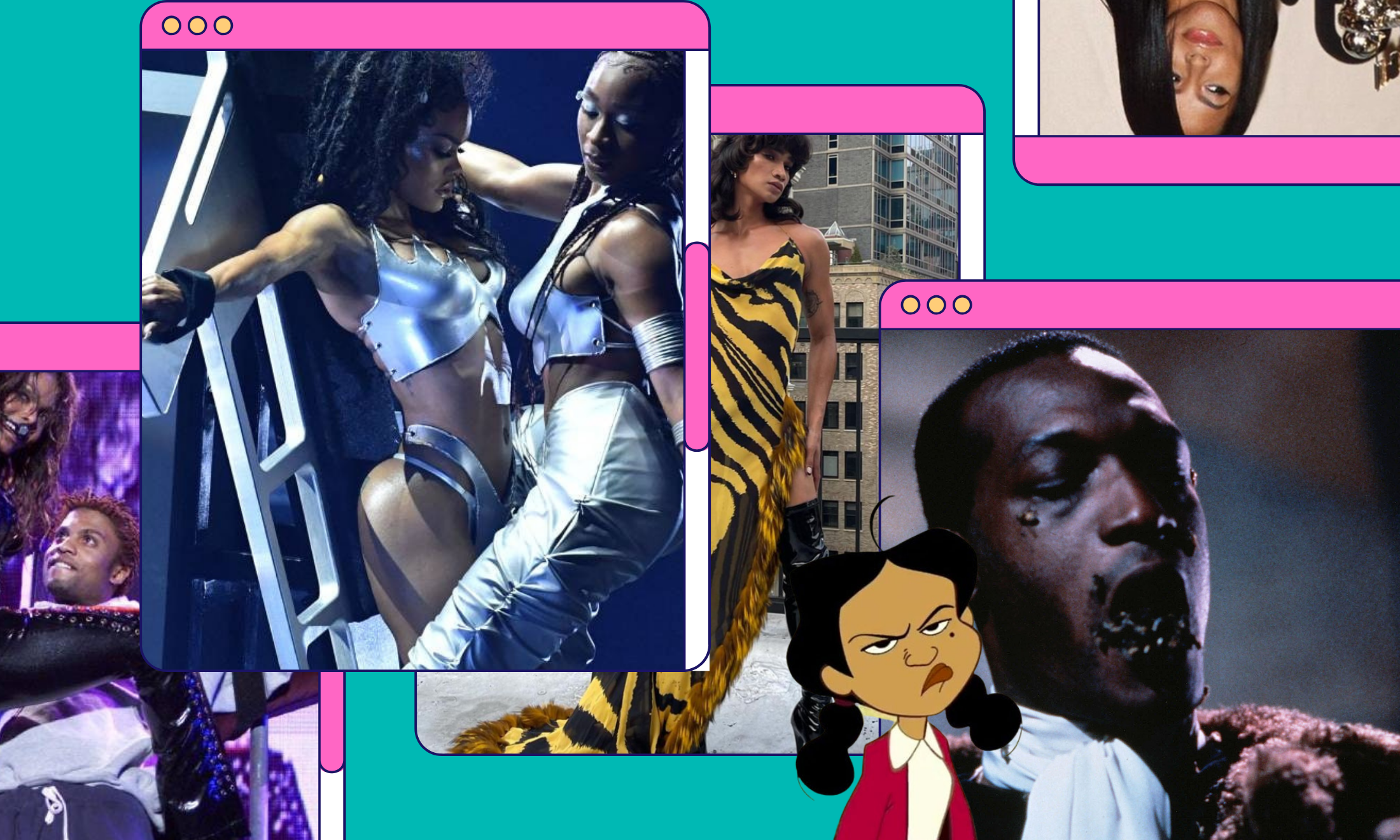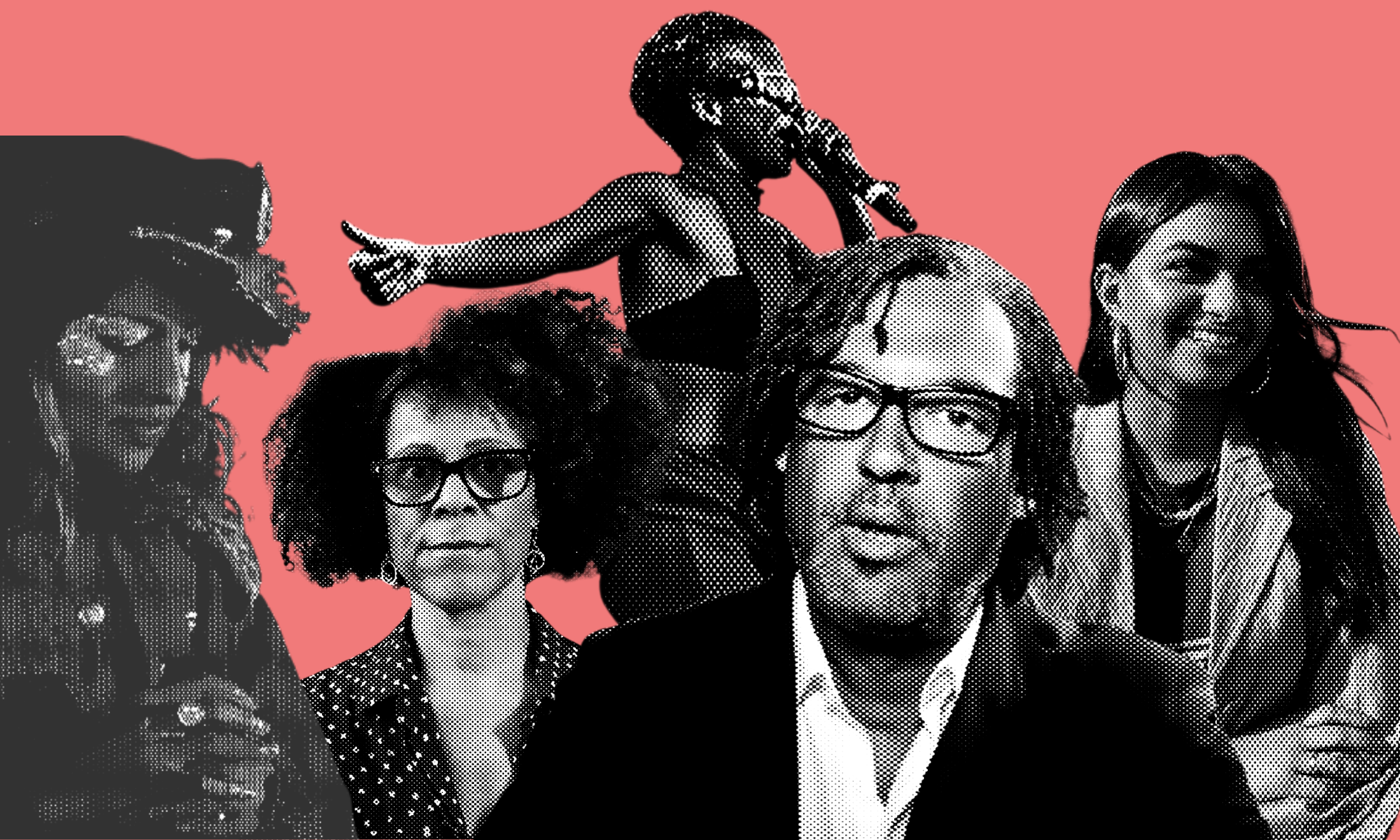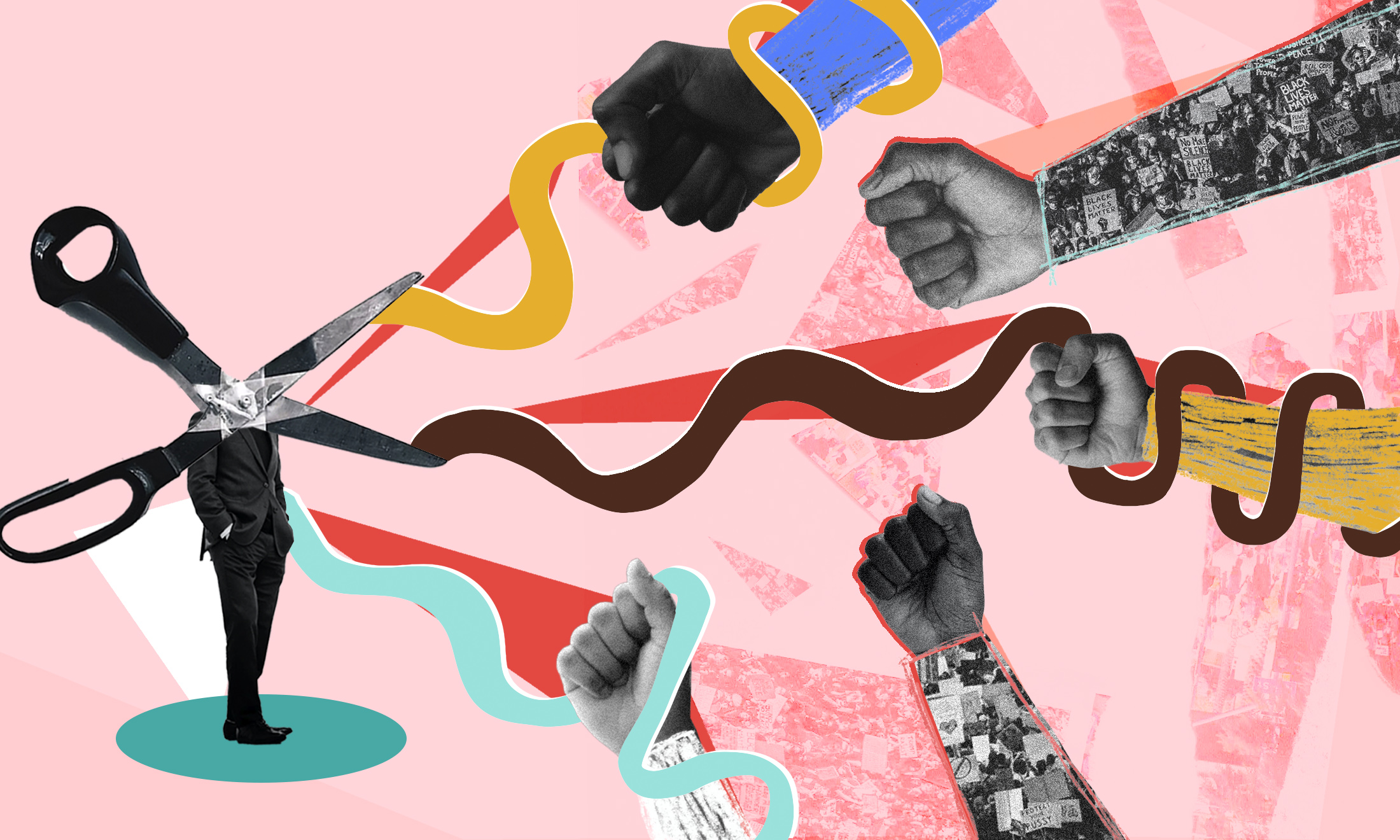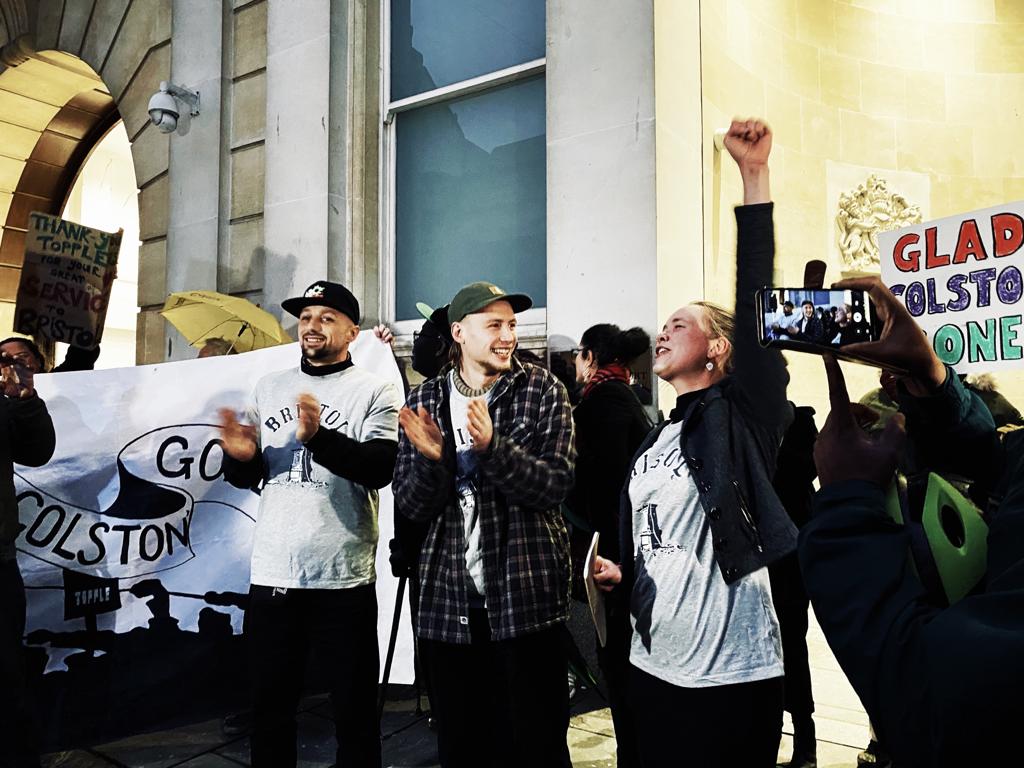
Canva
Can the Tory party please stop trying to make a culture war happen?
With their "war on woke", the Tory party has shown just how scared they are of powerful anti-racist movements.
Nali Simukulwa
17 Dec 2020
Today, women and equalities minister Liz Truss decided to raise her rusty sword and run, headfirst, into the Tory party’s 2020 crusade: the culture war.
Announcing an “overhaul” of the equalities brief, Truss said there would be less of a focus on protected characteristics like race and gender. These, along with methods for fighting racial injustice like diversity statements, she said were “tools of the Left” and “fashionable” issues. Right wing papers immediately hailed her announcement – which included worrying dogwhistle references to “single-sex spaces” – as a “war on woke”.
It was part of war alright – but it’s the artificial cultural one that’s raged all year as the Tories desperately try and position issues like racial equality as a superficial preserve of the left.
This month we also saw Tory MP George Eustice refuse to condemn Millwall FC fans who jeered at players kneeling to protest police brutality. Instead, Eustice denounced the Black Lives Matter (BLM) movement as “different to what most of us believe in”, labelling it “political” and claiming that it didn’t stand for “racial equality”.
Several other Tories have lined up to reframe anti-racist actions this year. Earlier this month Priti Patel rushed to the supposed defence of victims of the Windrush scandal; when a cohort of celebrities urged her to stop further deportations to Jamaica on 2 December, she slammed them as “do-gooders”. In October, Kemi Badenoch, the equalities minister (oh, the irony) said that teaching school children about white privilege was “illegal”, adding that calls to diversify and “decolonise” the curriculum were a “fad”.
Though infuriating, these actions are revealing of a deeper insecurity held by the Tories. The “us” to which Eustice referred to is not that of a united Britain – it’s a Conservative party desperately trying to maintain power as anti-racist movements shed light on the inequality upon which the party was founded.
Alongside the growing traction of the BLM movement, we have seen an increase in public consciousness of racism. Even the corporate world is taking note, with the emergence of adverts that sensitively give voice to the Black experience. No matter how much the Tories have attempted to demonise BLM itself, the country as a whole seems more attuned to the presence of racism – and more willing to tackle it. This, of course, poses a threat. If solidarity across racial lines is formed, who knows what that could lead to next. Worker solidarity? For the Tories, it’s a thought too terrible to countenance.
“The formidable Toni Morrison said it best: ‘The very serious function of racism is distraction. It keeps you from doing your work. It keeps you explaining, over and over again, your reason for being’”
So, instead, they’ve adopted a new strategy: start a culture war built on semantics and quicksand, to distract the rest of us from more significant debates. These tactics are intended to goad people of colour, taking up our valuable time by having us retaliate via draining debates that skew the crux of the matter. Though frustrating to see a movement that we know to be significant be belittled and dismissed, the advice we were all told in the school yard should be applied here: don’t give them the satisfaction. The formidable Toni Morrison said it best: “The very serious function of racism is distraction. It keeps you from doing your work. It keeps you explaining, over and over again, your reason for being”.
This is what we are seeing from the Tories. As leaders and ordinary people alike begin taking action which threatens the unequal state of affairs, Tory ministers try to disrupt the progress being made. In labelling BLM “political”, we have seen them try to frame anti-racism as a partisan issue; a calculated move intended to divide the population and distract from the reality that structural injustice exists in all facets of life – including at both ends of the political spectrum.
But when these efforts are met with resistance from the nascent factions of society who are aware of the need for reform, the Tories move the goalposts once more. We saw similar tactics from the Thatcher government which sought to other the “loony left”, painting movements for equality – such as the gay rights movement and the miners’ strike – as threats to British culture, in attempt to preserve conservative fundamentalist values.
It seems when times are tough for the Tories, they return to the methods that have served them in the past. They trivialise anti-racist action, painting it as “political correctness gone mad”, via fear-mongering that anti-racist movements want to cull musty 1970s sitcoms and stop the BBC broadcasting ‘Rule Britannia’. If we feed into this, soon the focus shifts and instead of discussing matters like the fact Black women are five times more likely to die in childbirth, we are drawn out and forced to waste our time defending TV listings.
“Problematic cultural symbols are a symptom, not the cause of institutionalised racism. Squabbles over these emblems, without wider discussion of their roots, do little to liberate us”
However, as British culture appears to finally progress beyond a monolith of Anglo-Saxon whiteness, The Tories are realising they’re fighting a losing battle. Younger people broadly want more equality, in all walks of life. With millennials sick of financial precarity and Gen Z radicalised by the government’s inaction over A-Levels and the return to university, the aims of anti-racist movements, like BLM, are being not only listened to, but acted upon by younger generations.
It’s no surprise that in the 2019 general election Labour managed to retain its newest seats thanks to young people, with 56% of 18 to 24-year-olds voting Labour compared to 22% of over-sixties. The generations that romanticised Britain’s colonial heyday are fading, replaced with a new wave of activists who perform TikTok dances over audio of leftist political propaganda.
The status quo that supports the lives of the powerful is slowly crumbling and in a final plea to divide, the Tories try to fan the flames of our rightful anger, channelling it away from the causes that matter. But let’s not be fooled by smoke and mirrors. We need to remember that our goal is change. Problematic cultural symbols are a symptom, not the cause of institutionalised racism. Squabbles over these emblems, without wider discussion of their roots, do little to liberate us.
Culture is an integral part of the identity politics that have shaped anti-racist movements. But the culture war is an illusion. Even the phrase itself is as empty and hollow as the moral capacity of the people trying to encourage it. Perhaps keeping this in mind will give us some perspective and the ability to press “draft” on that clapback thread the next time the Tories blow smoke about icons of British culture.

